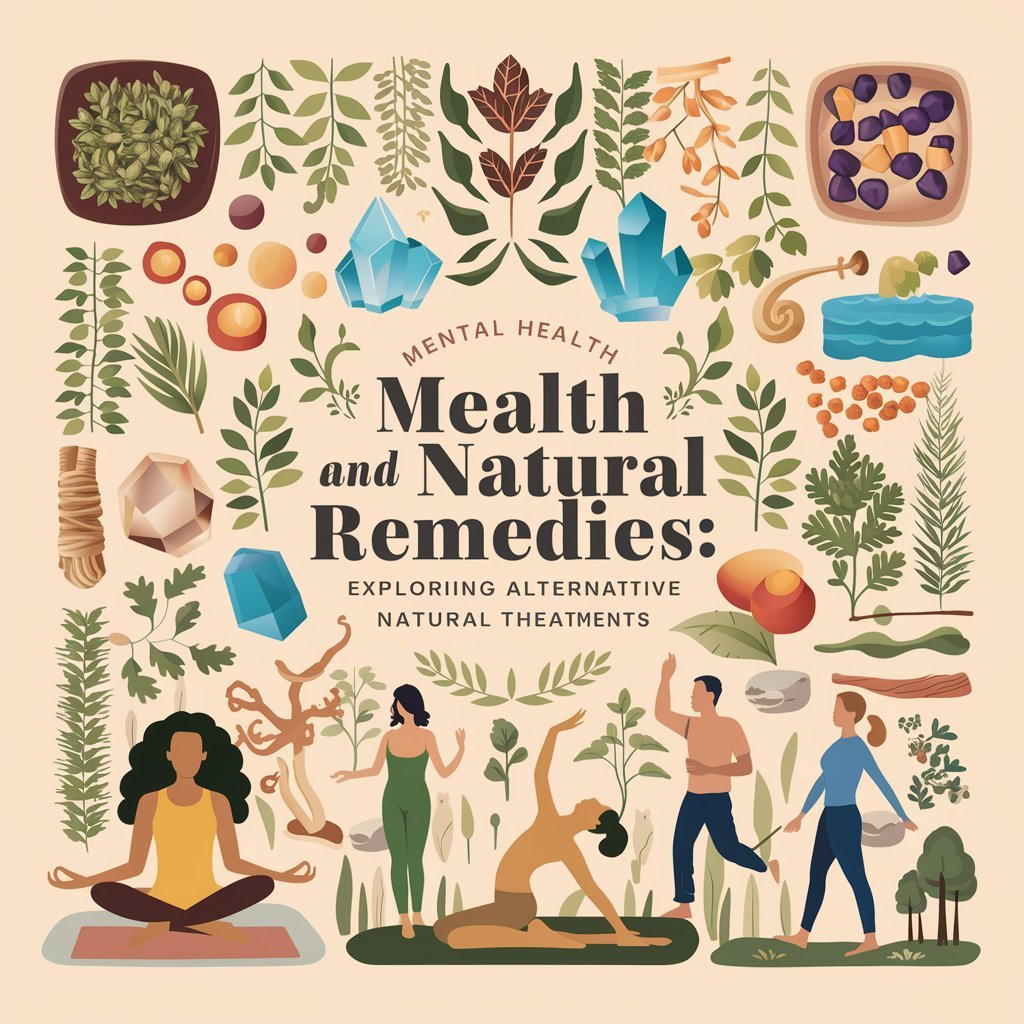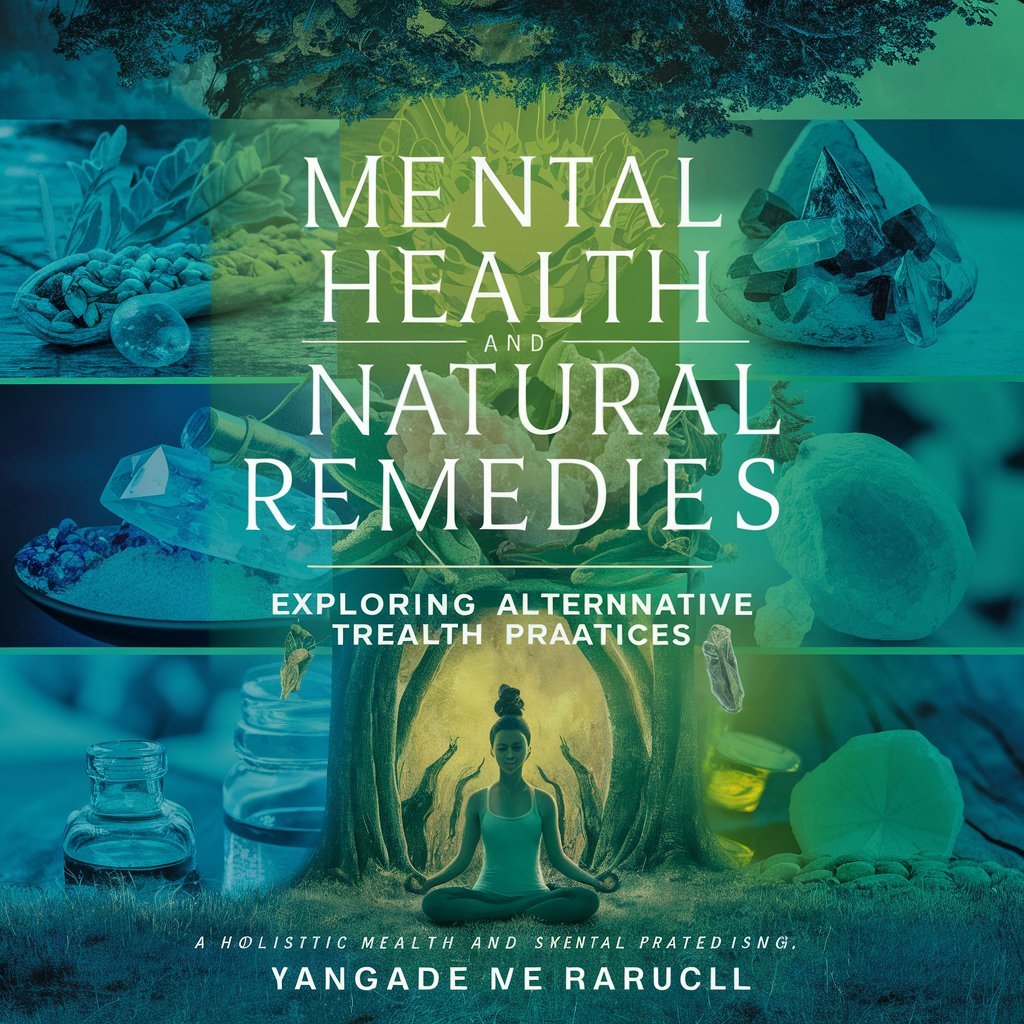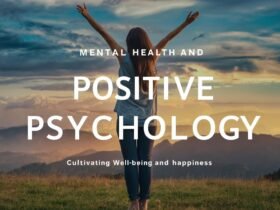Mental Health and Natural Remedies: Exploring Alternative Treatments
Hey there, my young and curious friends! It’s your mental health buddy, Nita Sharda, here to talk about a topic that’s been getting a lot of buzz lately – mental health and natural remedies, and how we can explore alternative treatments to support our well-being.
Now, I know that when we think about taking care of our mental health, we might picture going to a therapist or taking medication. And while those can be really important and helpful options for many people, they’re not the only ways to support our emotional and psychological well-being.
In fact, there are lots of natural remedies and alternative treatments out there that can help us feel better, cope with stress and anxiety, and promote overall mental health and resilience.
So today, we’re going to dive into the world of natural remedies and explore some of the ways we can incorporate them into our mental health toolbox.
What are Natural Remedies?
First things first, let’s define what we mean by natural remedies.
Natural remedies are treatments or therapies that use natural substances or practices to promote health and well-being. They can include things like:
- Herbal medicine and supplements
- Nutritional therapies and special diets
- Mind-body practices like yoga, meditation, and deep breathing
- Aromatherapy and essential oils
- Acupuncture and massage therapy
The idea behind natural remedies is that they work with the body’s own healing processes to restore balance and promote wellness, rather than just treating symptoms.
And while natural remedies have been used for centuries in different cultures around the world, they’ve been gaining more mainstream attention in recent years as people look for holistic and non-pharmaceutical ways to support their mental health.
The Benefits of Natural Remedies for Mental Health
So, what are some of the potential benefits of using natural remedies for mental health? Here are a few key ones:
Fewer Side Effects
One of the biggest advantages of natural remedies is that they tend to have fewer side effects than prescription medications.
While medications can be life-saving for many people with mental health conditions, they can also come with a range of potential side effects like weight gain, fatigue, and sexual dysfunction.
Natural remedies, on the other hand, are generally gentler on the body and may have fewer unwanted side effects.
Holistic Approach
Another benefit of natural remedies is that they often take a more holistic approach to mental health, looking at the whole person rather than just their symptoms.
This means that natural remedies may address underlying factors that contribute to mental health issues, like stress, diet, sleep, and lifestyle habits.
By taking a more comprehensive approach, natural remedies can help promote overall well-being and resilience, not just manage specific symptoms.
Empowerment and Self-Care
Using natural remedies can also be a way to take an active role in your own mental health care and feel more empowered in your healing journey.
Rather than relying solely on external treatments or experts, natural remedies can be a way to develop your own self-care practices and coping strategies.
This can help build a sense of agency and control over your mental health, which can be really important for long-term well-being.
Some Popular Natural Remedies for Mental Health
So, what are some of the most popular natural remedies for mental health? Here are a few that have been getting a lot of attention:
St. John’s Wort
St. John’s Wort is an herbal supplement that has been used for centuries to treat mild to moderate depression.
It works by increasing the levels of certain neurotransmitters in the brain, like serotonin and dopamine, which can help regulate mood and emotions.
Some studies have found that St. John’s Wort can be as effective as prescription antidepressants for mild to moderate depression, with fewer side effects.
However, it can also interact with certain medications, so it’s important to talk to a healthcare provider before using it.
Omega-3 Fatty Acids
Omega-3 fatty acids are a type of healthy fat found in foods like fish, nuts, and seeds.
Research has shown that omega-3s can have a positive impact on mental health, particularly for conditions like depression and anxiety.
Omega-3s work by reducing inflammation in the brain and body, which can contribute to mental health issues. They also play a role in brain development and function.
You can get omega-3s through your diet by eating fatty fish like salmon, or by taking a fish oil supplement.
Mindfulness Meditation
Mindfulness meditation is a mind-body practice that involves focusing your attention on the present moment, without judgment.
It can help reduce stress and anxiety, improve mood and emotional regulation, and promote overall well-being.
Mindfulness works by training the brain to be more aware and less reactive to thoughts and emotions. Over time, this can help build resilience and coping skills.
You can practice mindfulness through guided meditations, apps, or classes, or simply by taking a few minutes each day to focus on your breath and the present moment.
Yoga
Yoga is another mind-body practice that can have benefits for mental health.
It combines physical postures, breathing techniques, and meditation to promote relaxation, reduce stress and anxiety, and improve mood and well-being.
Yoga works by activating the parasympathetic nervous system, which is responsible for the “rest and digest” response. This can help counteract the effects of stress and promote a sense of calm and balance.
You can practice yoga through classes, videos, or apps, or simply by incorporating a few simple poses and breathing exercises into your daily routine.
A Message of Empowerment and Self-Care
Before we wrap up, I want to leave you with a message of empowerment and self-care, my young friends.
Taking care of your mental health is one of the most important things you can do for yourself, and there are so many different ways to do it.
Whether it’s through natural remedies, therapy, medication, or a combination of approaches, the key is to find what works for you and your unique needs and preferences.
And remember, taking care of your mental health isn’t a sign of weakness – it’s a sign of strength and self-awareness.
It’s okay to ask for help when you need it, and to prioritize your own well-being and happiness. You deserve to feel good and to live a life that’s full of joy, purpose, and meaning.

So don’t be afraid to explore different options and try new things when it comes to supporting your mental health. Be curious, be open-minded, and be kind to yourself.
And know that no matter what you’re going through, there is always hope and there are always people who care about you and want to support you.
So keep shining your light, my young friends, and never forget how amazing and resilient you are.












Leave a Reply